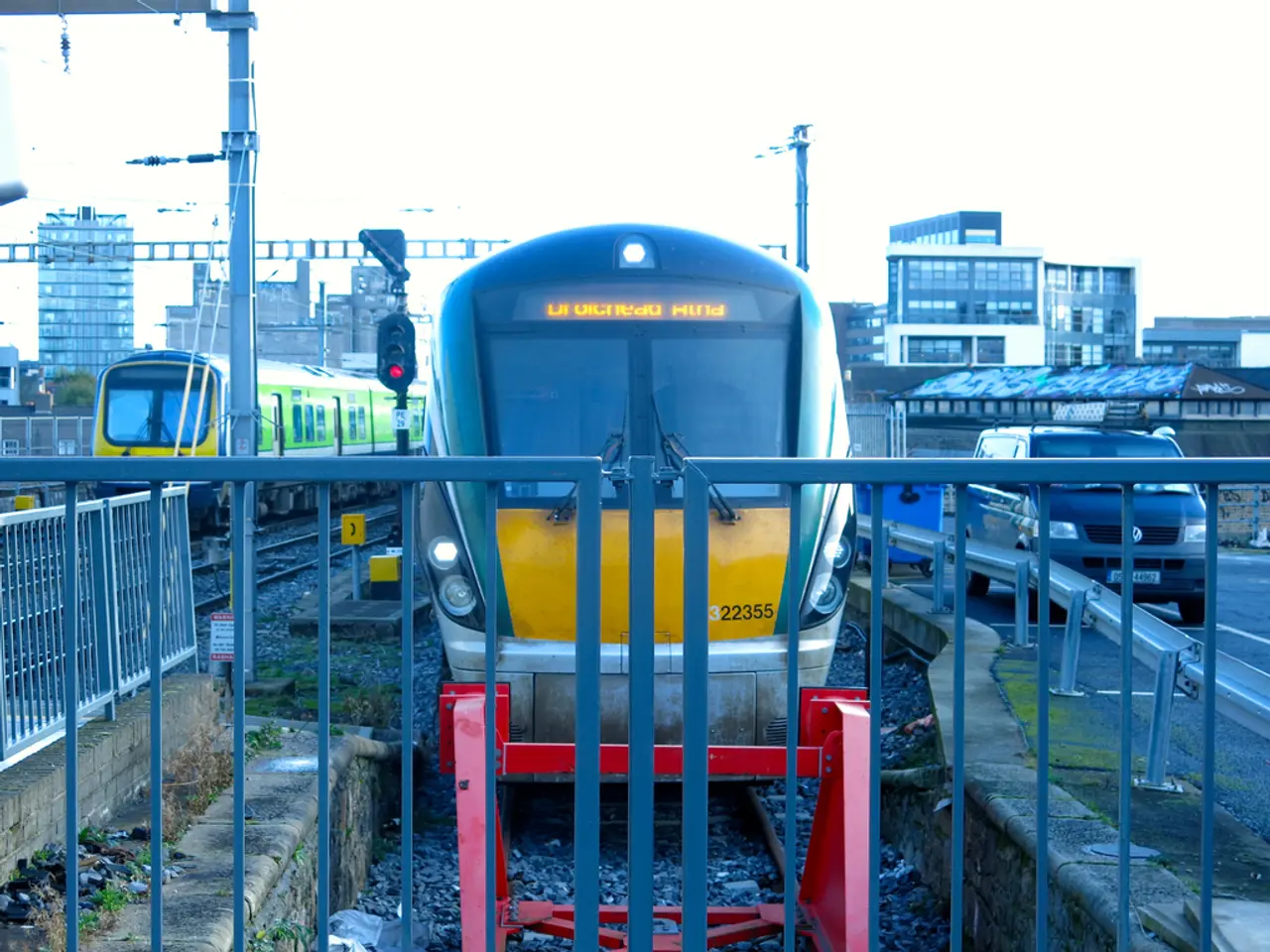London-bound train link set for imminent creation - Train service directly to London set to become imminent
Direct Rail Link Between Germany and the UK: A Step Forward in Cross-Border Travel
The governments of Germany and the United Kingdom have taken a significant step towards enhancing travel and boosting economic ties with the formal signing of a Joint Declaration of Intent in August 2025. The declaration marks the commencement of a joint project aimed at establishing a direct rail connection between the two nations [1][3][4][5].
The project, spearheaded by German Transport Minister Patrick Schnieder (CDU) and UK Secretary of State for Transport Heidi Alexander, envisions direct trains running "in the years to come," with the early 2030s being a likely target [2]. This ambitious plan, as outlined in The Kensington Treaty signed in July 2025 during German Chancellor Merz's UK visit, aims to connect London with major German cities like Frankfurt and Berlin, offering a greener alternative to flying and fostering tourism, economy, and cultural exchanges [2].
A joint task force has been established to work closely with infrastructure operators and rail companies, addressing open questions about the project, particularly those concerning border and security controls, regulatory requirements, infrastructure capacity, and operational and commercial matters [1][3][4][5]. The resolution of these challenges is crucial for enabling seamless direct passenger train services under the English Channel.
The collaboration includes a commitment to breaking down market barriers and improving cross-border access and competition. The project is positioned as a strategic, environmentally friendly link that could strengthen economic ties and contribute to the creation of new jobs on both sides [1][3][4][5].
The direct rail link, if established, could offer a comfortable alternative to flying, opening up new opportunities for tourism, the economy, and cultural exchange. Both Schnieder and Alexander have expressed their enthusiasm for the project, with Schnieder stating that a continuous connection would greatly simplify travel and significantly increase the attractiveness of rail travel [4]. Alexander sees enormous economic potential in the direct rail link [6].
In summary, while the resolution of border and security control issues is still pending, the direct UK-Germany rail link project is officially underway with high-level government cooperation and a clear roadmap. The actual service launch is expected within the next several years, potentially by the early 2030s [1][2][3][4][5].
[1] BBC News, "UK and Germany to explore direct rail link," 2025, https://www.bbc.co.uk/news/uk-57467002
[2] The Guardian, "UK and Germany sign treaty to explore direct rail link," 2025, https://www.theguardian.com/world/2025/aug/01/uk-and-germany-sign-treaty-to-explore-direct-rail-link
[3] Deutsche Welle, "UK and Germany to explore direct rail link," 2025, https://www.dw.com/en/uk-and-germany-to-explore-direct-rail-link/a-56522836
[4] Reuters, "Germany and UK to explore direct rail link," 2025, https://www.reuters.com/article/us-uk-germany-rail-idUSKCN25H227
[5] The Telegraph, "UK and Germany to explore direct rail link," 2025, https://www.telegraph.co.uk/news/2025/08/01/uk-germany-explore-direct-rail-link/
[6] Sky News, "Heidi Alexander: Direct rail link 'enormous economic potential'," 2025, https://news.sky.com/story/heidi-alexander-direct-rail-link-enormous-economic-potential-12450600
- The joint rail link project between Germany and the UK is anticipated to stimulate various sectors, such as the lifestyle industry, transportation, tourism, and finance, by providing a greener travel alternative.
- The establishment of a direct rail link could foster vocational opportunities in the travel and hospitality sectors, as increased tourism and economic exchange are expected to create a demand for vocational training programs.
- The successful implementation of the direct UK-Germany rail link could pave the way for further collaborations in the infrastructure and vocational training sectors, enhancing cross-border cooperation and fostering a stronger community policy.




